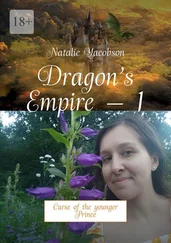Snorri Sturluson - The Younger Edda; Also called Snorre's Edda, or The Prose Edda
Здесь есть возможность читать онлайн «Snorri Sturluson - The Younger Edda; Also called Snorre's Edda, or The Prose Edda» — ознакомительный отрывок электронной книги совершенно бесплатно, а после прочтения отрывка купить полную версию. В некоторых случаях можно слушать аудио, скачать через торрент в формате fb2 и присутствует краткое содержание. Издательство: Иностранный паблик, Жанр: foreign_poetry, Мифы. Легенды. Эпос, Поэзия, foreign_antique, foreign_prose, на английском языке. Описание произведения, (предисловие) а так же отзывы посетителей доступны на портале библиотеки ЛибКат.
- Название:The Younger Edda; Also called Snorre's Edda, or The Prose Edda
- Автор:
- Издательство:Иностранный паблик
- Жанр:
- Год:неизвестен
- ISBN:нет данных
- Рейтинг книги:3 / 5. Голосов: 1
-
Избранное:Добавить в избранное
- Отзывы:
-
Ваша оценка:
- 60
- 1
- 2
- 3
- 4
- 5
The Younger Edda; Also called Snorre's Edda, or The Prose Edda: краткое содержание, описание и аннотация
Предлагаем к чтению аннотацию, описание, краткое содержание или предисловие (зависит от того, что написал сам автор книги «The Younger Edda; Also called Snorre's Edda, or The Prose Edda»). Если вы не нашли необходимую информацию о книге — напишите в комментариях, мы постараемся отыскать её.
The Younger Edda; Also called Snorre's Edda, or The Prose Edda — читать онлайн ознакомительный отрывок
Ниже представлен текст книги, разбитый по страницам. Система сохранения места последней прочитанной страницы, позволяет с удобством читать онлайн бесплатно книгу «The Younger Edda; Also called Snorre's Edda, or The Prose Edda», без необходимости каждый раз заново искать на чём Вы остановились. Поставьте закладку, и сможете в любой момент перейти на страницу, на которой закончили чтение.
Интервал:
Закладка:
On the European continent and in England the zeal of the priests in propagating Christianity was so great that they sought to root out every trace of the asa-faith. They left but unintelligible fragments of the heathen religious structure. Our gods and goddesses and heroes were consigned to oblivion, and all knowledge of the Odinic religion and of the Niblung-story would have been well nigh totally obliterated had not a more lucky star hovered over the destinies of Iceland. In this remotest corner of the world the ancestral spirit was preserved like the glowing embers of Hekla beneath the snow and ice of the glacier. From the farthest Thule the spirit of our fathers rises and shines like an aurora over all Teutondom. It was in the year 860 that Iceland was discovered. In 874 the Teutonic spirit fled thither for refuge from tyranny. Here a government based on the principles of old Teutonic liberty was established. From here went forth daring vikings, who discovered Greenland and Vinland, and showed Columbus the way to America. From here the courts of Norway, Sweden, Denmark, England and Germany were supplied with skalds to sing their praises. Here was put in writing the laws and sagas that give us a clue to the form of old Teutonic institutions. Here was preserved the Old Norse language, and in it a record of the customs, the institutions and the religion of our fathers. Its literature does not belong to that island alone,—it belongs to the whole Teutonic race! Iceland is for the Teutons what Greece and Rome are for the south of Europe, and she accomplished her mission with no less efficiency and success. Cato the Elder used to end all his speeches with these words: “Præterea censeo Carthaginem esse delendam.” In these days, when so many worship at the shrine of Romanism, we think it perfectly just to adopt Cato’s sentence in this form: Præterea censeo Romam esse delendam .
FOREWORD
1. In the beginning Almighty God created heaven and earth, and all things that belong to them, and last he made two human beings, from whom the races are descended (Adam and Eve), and their children multiplied and spread over all the world. But in the course of time men became unequal; some were good and right-believing, but many more turned them after the lusts of the world and heeded not God’s laws; and for this reason God drowned the world in the flood, and all that was quick in the world, except those who were in the ark with Noah. After the flood of Noah there lived eight men, who inhabited the world, and from them the races are descended; and now, as before, they increased and filled the world, and there were very many men who loved to covet wealth and power, but turned away from obedience to God, and so much did they do this that they would not name God. And who could then tell their sons of the wonderful works of God? So it came to pass that they lost God’s name; and in the wide world the man was not to be found who could tell of his Maker. But, nevertheless, God gave them earthly-gifts, wealth and happiness, that should be with them in the world; he also shared wisdom among them, so that they understood all earthly things, and all kinds that might be seen in the air and on the earth. This they thought upon, and wondered at, how it could come to pass that the earth and the beasts and the birds had the same nature in some things but still were unlike in manners.
One evidence of this nature was that the earth might be dug into upon high mountain-peaks and water would spring up there, and it was not necessary to dig deeper for water there than in deep dales; thus, also, in beasts and birds it is no farther to the blood in the head than in the feet. Another proof of this nature is, that every year there grow on the earth grass and flowers, and the same year it falls and withers; thus, also, on beasts and birds do hair and feathers grow and fall off each year. The third nature of the earth is, that when it is opened and dug into, then grass grows on the mould which is uppermost on the earth. Rocks and stones they explained to correspond to the teeth and bones of living things. From these things they judged that the earth must be quick and must have life in some way, and they knew that it was of a wonderfully great age and of a mighty nature. It nourished all that was quick and took to itself all that died. On this account they gave it a name, and numbered their ancestors back to it This they also learned from their old kinsmen, that when many hundred winters were numbered, the course of the heavenly bodies was uneven; some had a longer course than others. From such things they suspected that some one must be the ruler of the heavenly bodies who could stay their course at his own will, and he must be strong and mighty; and of him they thought that, if he ruled the prime elements, he must also have been before the heavenly bodies, and they saw that, if he ruled the course of the heavenly bodies, he must rule the sunshine, and the dew of the heavens, and the products of the earth that follow them; and thus, also, the winds of the air and therewith the storms of the sea. They knew not where his realm was, but they believed that he ruled over all things on the earth and in the air, over the heavens and the heavenly bodies, the seas and the weather. But in order that these things might be better told and remembered, they gave him the same name with themselves, and this belief has been changed in many ways, as the peoples have been separated and the tongues have been divided.
2. In his old age Noah shared the world with his sons: for Ham he intended the western region, for Japheth the northern region, but for Shem the southern region, with those parts which will hereafter be marked out in the division of the earth into three parts. In the time that the sons of these men were in the world, then increased forthwith the desire for riches and power, from the fact that they knew many crafts that had not been discovered before, and each one was exalted with his own handiwork; and so far did they carry their pride, that the Africans, descended from Ham, harried in that part of the world which the offspring of Shem, their kinsman, inhabited. And when they had conquered them, the world seemed to them too small, and they smithied a tower with tile and stone, which they meant should reach to heaven, on the plain called Sennar. And when this building was so far advanced that it extended above the air, and they were no less eager to continue the work, and when God saw how their pride waxed high, then he sees that he will have to strike it down in some way. And the same God, who is almighty, and who might have struck down all their work in the twinkling of an eye, and made themselves turn into dust, still preferred to frustrate their purpose by making them realize their own littleness, in that none of them should understand what the other talked; and thus no one knew what the other commanded, and one broke what the other wished to build up, until they came to strife among themselves, and therewith was frustrated, in the beginning, their purpose of building a tower. And he who was foremost, hight Zoroaster, he laughed before he wept when he came into the world; but the master-smiths were seventy-two, and so many tongues have spread over the world since the giants were dispersed over the land, and the nations became numerous. In this same place was built the most famous city, which took its name from the tower, and was called Babylon. And when the confusion of tongues had taken place, then increased the names of men and of other things, and this same Zoroaster had many names; and although he understood that his pride was laid low by the said building, still he worked his way unto worldly power, and had himself chosen king over many peoples of the Assyrians. From him arose the error of idolatry; and when he was worshiped he was called Baal; we call him Bel; he also had many other names. But as the names increased in number, so was truth lost; and from this first error every following man worshiped his head-master, beasts or birds, the air and the heavenly bodies, and various lifeless things, until the error at length spread over the whole world; and so carefully did they lose the truth that no one knew his maker, excepting those men alone who spoke the Hebrew tongue,—that which flourished before the building of the tower,—and still they did not lose the bodily endowments that were given them, and therefore they judged of all things with earthly understanding, for spiritual wisdom was not given unto them. They deemed that all things were smithied of some one material.
Читать дальшеИнтервал:
Закладка:
Похожие книги на «The Younger Edda; Also called Snorre's Edda, or The Prose Edda»
Представляем Вашему вниманию похожие книги на «The Younger Edda; Also called Snorre's Edda, or The Prose Edda» списком для выбора. Мы отобрали схожую по названию и смыслу литературу в надежде предоставить читателям больше вариантов отыскать новые, интересные, ещё непрочитанные произведения.
Обсуждение, отзывы о книге «The Younger Edda; Also called Snorre's Edda, or The Prose Edda» и просто собственные мнения читателей. Оставьте ваши комментарии, напишите, что Вы думаете о произведении, его смысле или главных героях. Укажите что конкретно понравилось, а что нет, и почему Вы так считаете.












